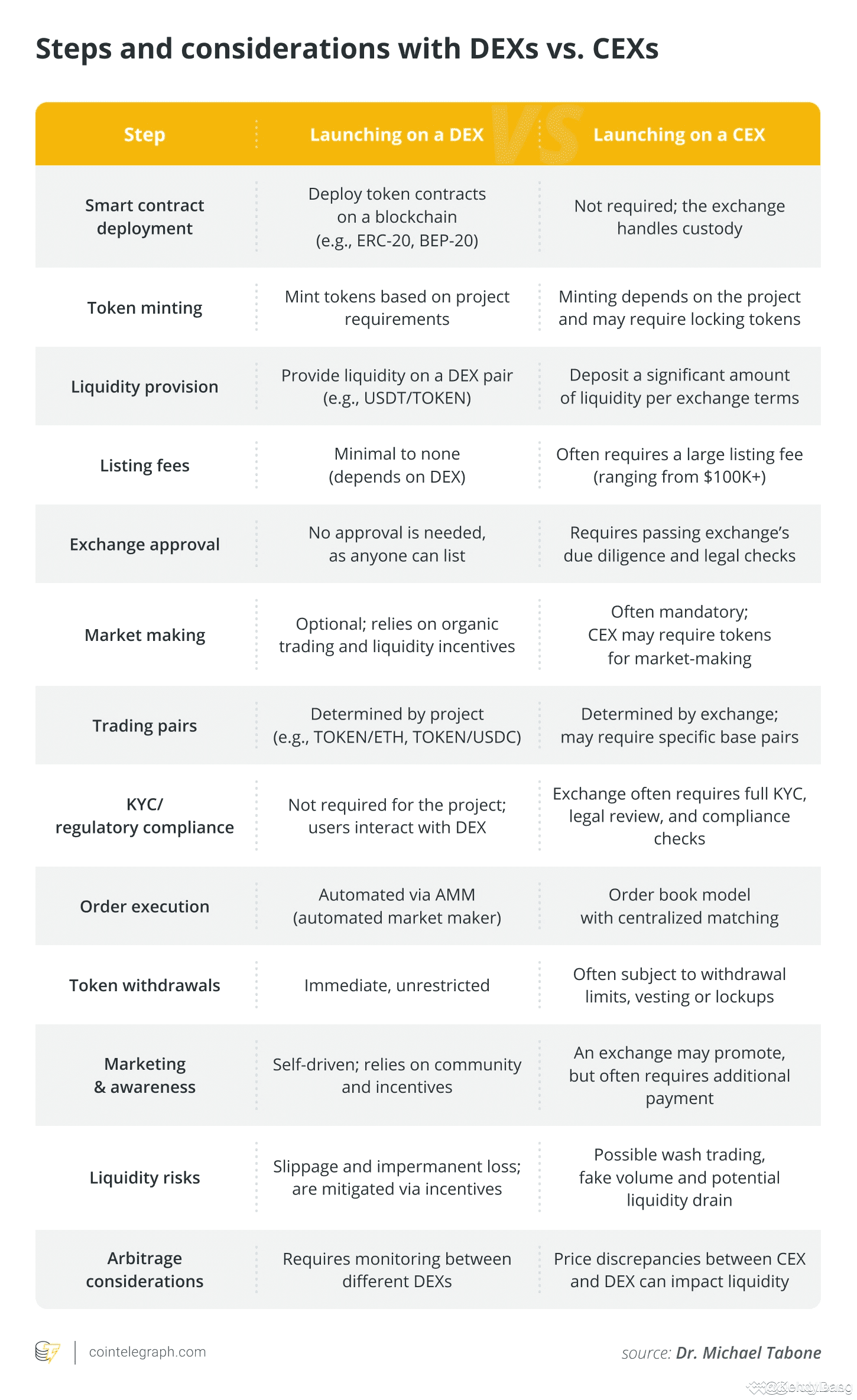Changpeng Zhao (CZ), the founder of Binance, recently criticized the listing process for tokens on centralized exchanges (CEX), claiming it to be inefficient and unfair. He proposed that CEXs should immediately list tokens, similar to how decentralized exchanges (DEXs) operate. CZ argued that the current process—announcing a listing and then waiting for several hours before the token is actually listed—causes its price to spike on DEXs, leading to a sell-off when the token is eventually listed on CEXs. This creates unwanted price volatility and negatively impacts investors.
This proposal has sparked concerns within the cryptocurrency community. Critics argue that allowing automatic token listings without a thorough vetting process could compromise the quality of tokens listed on CEXs and expose investors to unnecessary risks. CEXs typically carry out detailed checks to ensure the legitimacy and potential of a project before listing its token. Skipping these checks could open the door for scam tokens or low-value projects to be listed, leading to potential investor losses.

Yi He, co-founder of Binance, addressed these concerns by outlining the exchange’s criteria for listing tokens. According to Yi, Binance considers three main factors when deciding whether to list a token:
1. **Return on Investment (ROI):** This is evaluated by comparing the token’s price performance on its first trading day to its quarterly performance on other exchanges.
2. **Innovation:** Whether the project brings innovation to the blockchain industry and has the potential to convert users into long-term, dedicated customers.
3. **Market Attention:** Whether the token has garnered significant interest from the community and shows promise in terms of technology.
Yi emphasized that Binance does not just base listing decisions on short-term profits but also considers the long-term potential and the innovation the project brings to the industry.
Earlier, Binance had faced issues with its listing process. A notable example was the TST token, which was initially created as an experiment on the BNB Chain blockchain. However, this token was pumped on DEXs and saw a sharp decline in value once listed on CEXs, resulting in significant losses for investors. CZ criticized Binance’s listing process after this incident, calling for improvements to prevent similar situations in the future.
CZ’s suggestion of automatically listing tokens like DEXs has stirred controversy in the crypto community. Many worry that bypassing the vetting process could lead to the listing of unreliable tokens, increasing risks for investors and tarnishing the exchange’s reputation.
In conclusion, while CZ’s proposal aims to improve the listing process and minimize price volatility, automating token listings without sufficient checks could lead to considerable risks. The crypto community needs to carefully balance improving the listing process with ensuring investor safety and maintaining trust in exchanges.


